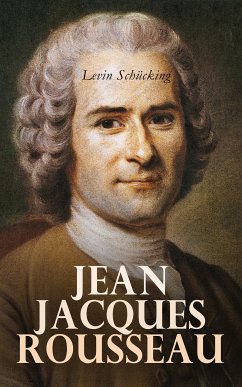
The Confessions of Jean-Jacques Rousseau (eBook, ePUB)
Versandkostenfrei!
Sofort per Download lieferbar
7,99 €
inkl. MwSt.
Weitere Ausgaben:

PAYBACK Punkte
4 °P sammeln!
"The Confessions of Jean-Jacques Rousseau" is a one-of-a-kind autobiography. Up until its publication in 1782, only two autobiographies had ever been written, and both were written by devout religious saints. Highly scandalous yet witty in nature, calling Rousseau's work an "autobiography" is a loose categorization of the text, as many of the stories and tales have been proven false, yet Rousseau told the truth about the spirit of his life through the book. He creates a portrait of himself that he wanted readers to remember, drawing from a humorous inner-monologue that his "character" created....
"The Confessions of Jean-Jacques Rousseau" is a one-of-a-kind autobiography. Up until its publication in 1782, only two autobiographies had ever been written, and both were written by devout religious saints. Highly scandalous yet witty in nature, calling Rousseau's work an "autobiography" is a loose categorization of the text, as many of the stories and tales have been proven false, yet Rousseau told the truth about the spirit of his life through the book. He creates a portrait of himself that he wanted readers to remember, drawing from a humorous inner-monologue that his "character" created. Critics and readers often refer to Rousseau as a "genius", not only for his other works, but also because of the "Confessions". He took a risk in generating a contemptible persona as representative of his voice, but he then draws the reader to his side by his blatantly comical honesty. He is a gambler, a trickster, a gossip, and a mastermind all in one body. But aside from his comedy, Rousseau also discusses the difficulty of living in a culture that banned his earlier works and friends who betrayed him during the revolutionary times. "The Confessions of Jean-Jacques Rousseau" is a significant text because of its wit, its honesty, and its portrayal of French history and society. This edition includes a biographical afterword.
Dieser Download kann aus rechtlichen Gründen nur mit Rechnungsadresse in A, D ausgeliefert werden.














